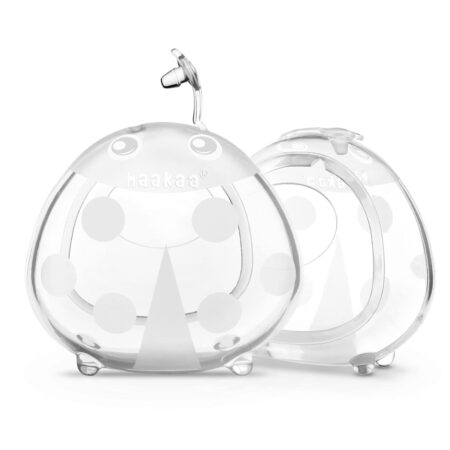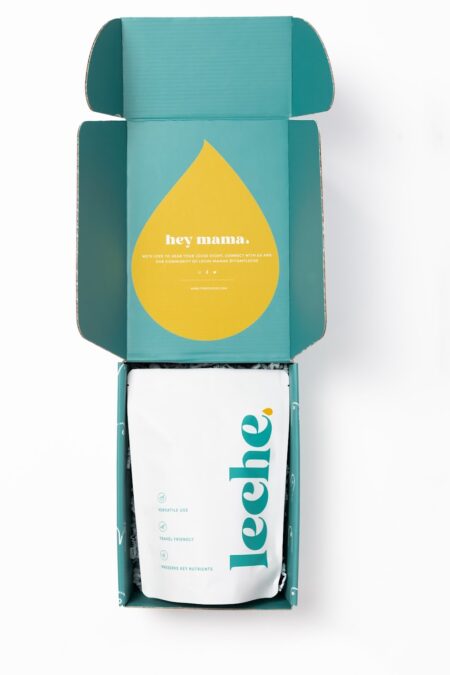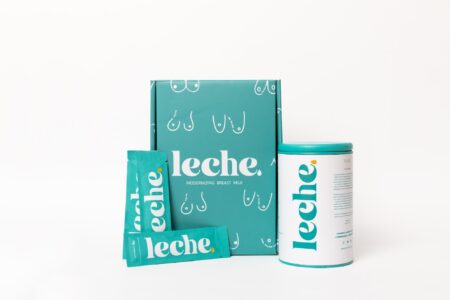These are the products I wish I had registered for as a breastfeeding mom

The idea of breastfeeding can be both exciting and overwhelming. You’ve probably read about the countless benefits of breastfeeding for both you and your baby. But it’s less common to hear about the not-so-glamorous side of breastfeeding or pumping. Because breastfeeding your newborn will basically be your full-time job, breastfeeding and pumping can take a toll on your physical and mental health in ways that are hard to prepare for. Thankfully, even as a second-time mom, there are so many new products that help make breastfeeding more flexible and more convenient. It wasn’t until after the birth of my second baby that I co-founded Leche to help moms do just that! Here’s what else I’d recommend as you embark on your breastfeeding journey—whether it’s your first foray or your fifth.
What to register for as a breastfeeding mom
Here are a few things I wish I knew before I began my own breastfeeding and pumping journey.
Postpartum support
Hormone fluctuations, sleepless nights and the toll of the mental load in motherhood can make it hard to reach out for extra help like a doula or therapist, but it’s so vital to have an impartial person who can support you in those early days, weeks and months.
There are so many amazing registry companies that actually allow you to register for a doula, mental health professional. PSA: Register for these support services before you actually need them!
Lactation support
It’s important to remember that every mom and baby are different, and it may take some time to get into a flow with breastfeeding. Because your milk supply changes with a variety of factors like nutrition and hydration, age of your baby, time of feedings and overall demand from your little ones, it may seem difficult to understand how to navigate, predict and measure your breast milk output and ensure your baby is getting enough. A lactation consultant can answer any questions you may have and help you troubleshoot any issues. Consider registering for their services (though your insurance may also cover a portion).
A good pump and accessories
Remember: Pumping is breastfeeding. Pumping breast milk can be a great option for moms who want to ensure their baby has access to breast milk even when breastfeeding isn’t possible. It allows you to have a supply of milk on hand, and can be used when you’re away, or when your baby is unable to breastfeed.
Additionally, pumping can help to maintain milk supply and give you some flexibility in your busy life as a mom. Most insurance plans will cover one pump, but you might want to register for pumping accessories to help make the job easier. Remember to bring your pump to the hospital or birthing center with you so that you have some immediate support in working out any initial pumping kinks with a trusted healthcare circle.
On-the-go pump
Compact and wearable breast pumps make on-the-go pumping easy and in some cases, undetectable. So whether you are traveling, heading back to the office or pumping in the pickup line, an on-the-go pump is your new best friend.
Pumping and nursing bras
It’s smart to stock up. Invest in some functional yet beautiful pieces that will carry you through this very specific stage in your life. You’ll feel more at ease with the process with the right support products at hand.
Nipple care essentials
Breast pads, nipple balm and Silverettes are helpful to keep your sensitive bits feeling 100% while you’re pumping or breastfeeding.
Bottles that fit your lifestyle
Technologically advanced and data-driven feeding is having a moment. Emulait and nfant are two brands that are taking the guesswork out of latching and keeping track of baby’s feedings.
Collector cups
Want to build a fridge or freezer stash with virtually no effort? Enter collector cups! If you’re breastfeeding on one side, these devices collect excess breast milk from your opposite breast. Those “excess” sessions can add up over time, allowing you to stockpile more breast milk for future feedings or even freeze drying.
Breast milk storage solutions
While freezing or refrigerating breast milk is still the most common storage method, freeze drying is considered the best form of preservation for breast milk as it removes the water content from milk, leaving behind only the nutrients and enzymes. Freeze-dried breast milk can be stored for up to three years at room temperature, whereas fresh milk can only be stored in the refrigerator for a few days, and frozen milk for up to 6 months. Interested to see if Leche is right for you? Check out these flexible travel and everyday options here.
A note on what to register for if you plan to breastfeed
Breastfeeding and pumping is not always easy, but it can be one of the most rewarding experiences you’ll have as a new mom. And while we know that nutritionally your breast milk is perfect for your little one, maintaining an exclusive supply is real work. For your mental and physical health as a mom, caregiver and so much more, it’s so important that you focus on your needs, too. We can’t say this enough… reach out for help! Remember, every baby is different, and what works for one may not work for the other. Be kind and compassionate to yourself, and know that you’re doing an amazing job.








